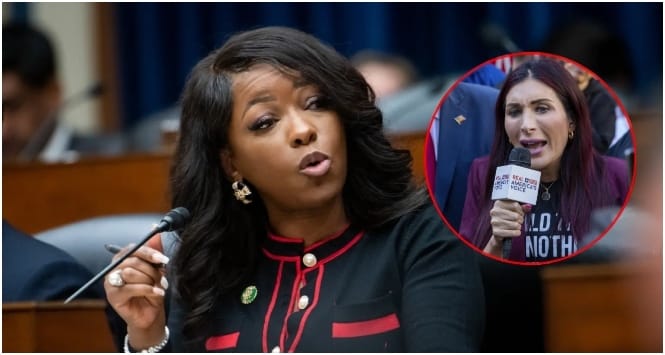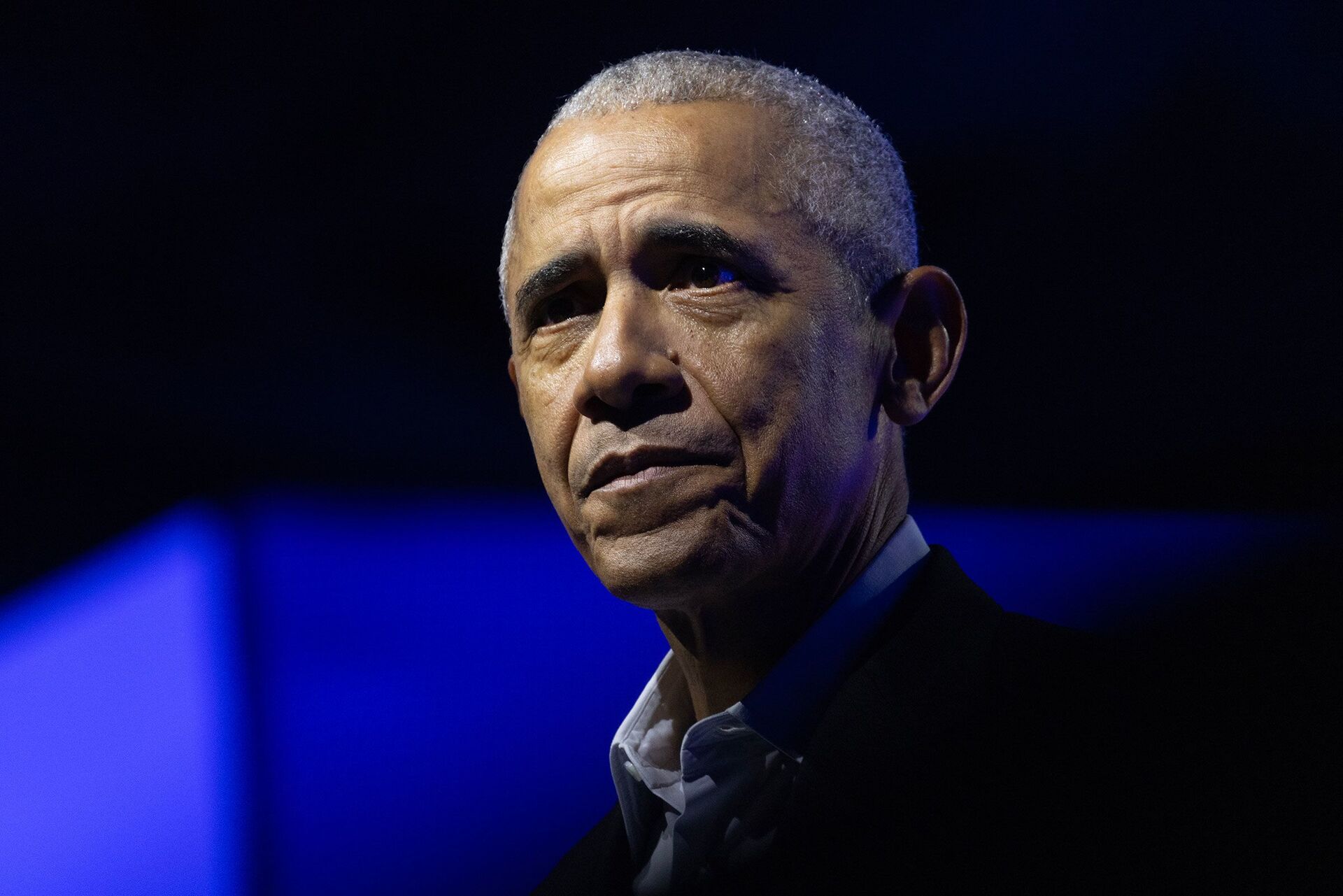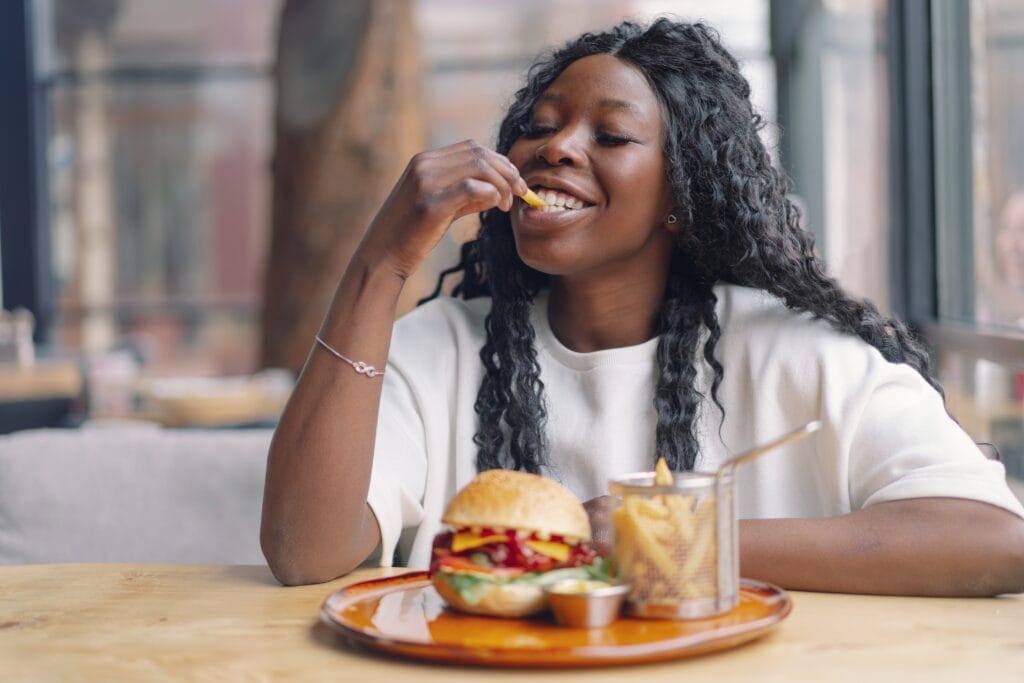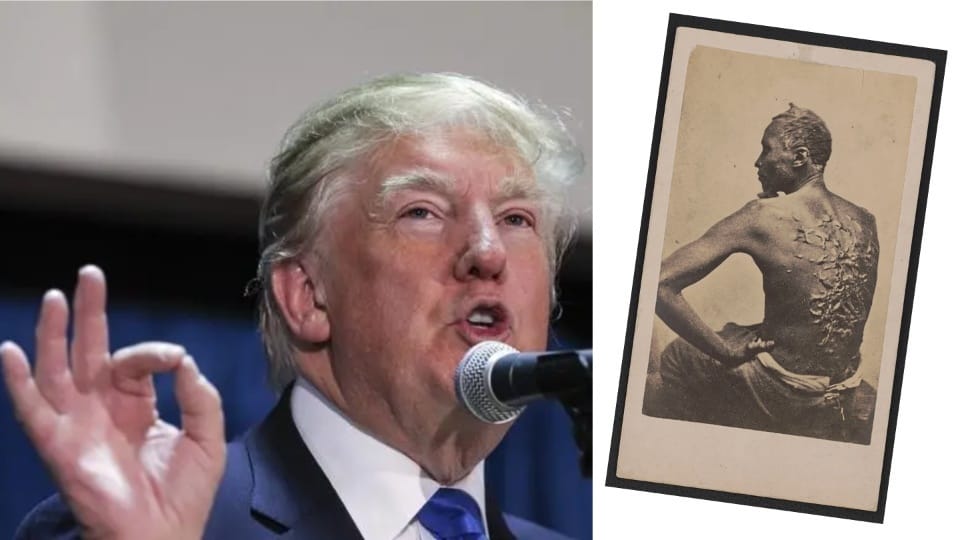- BlackVoter.Org
- Posts
- BlackVoter.Org
BlackVoter.Org

Rep. Jasmine Crockett, a rising voice in Congress, recently faced a racist attack from far-right figure Laura Loomer after Crockett criticized the racial dynamics surrounding a resolution honoring late activist Charlie Kirk.
During her appearance on CNN’s State of the Union, Crockett highlighted that almost all lawmakers who opposed the resolution were people of color, stirring discussions on racial identity and political allegiances. Loomer's derogatory comment about "ghetto Black b*s" serving in Congress sparked widespread outrage, illuminating the persistent racial and gender-based harassment faced by Black women in politics.
Critics argue that Loomer's vitriol only reinforces the inequities Crockett aimed to highlight. As tensions around race and representation escalate, Crockett's fearless approach continues to make waves, positioning her as a key player in ongoing dialogues about race, justice, and representation in Washington.


In a striking condemnation, former President Barack Obama labeled recent claims made by Donald Trump regarding Tylenol and autism as "violence against the truth." Speaking at an event in London, Obama expressed deep concern over the implications of Trump's announcements, which revolved around alleged links between the pain reliever and autism risk during pregnancy.
He criticized the unfounded assertions that could create anxiety among parents and misinform the public about autism, a condition characterized by a broad and evolving spectrum. Obama warned of the detrimental effects of such misinformation on public health and emphasized the necessity for truth and scientific integrity.
He also reflected on the challenges faced by democratic values in the current political climate, urging Americans to remain vigilant in defending free speech and the rule of law. Obama's critique highlights his increasing vocal opposition to the Trump administration's policies and rhetoric, echoing wider concerns about the state of American democracy.

President Joe Biden is ramping up his outreach to Black voters with upcoming visits to Georgia and Detroit, demonstrating his campaign’s commitment to not take any voter for granted. Aimed at connecting with the community, Biden will deliver a commencement speech at Morehouse College and engage with small business owners, followed by an address at an NAACP event.
His team emphasizes the need for consistent engagement, as recent polling shows a shift in support among younger Black voters. With support levels showing potential vulnerabilities, the Biden campaign is also highlighting achievements like record low Black unemployment and efforts to forgive significant student loan debt.
While the campaign faces scrutiny, especially regarding its stance on the Gaza conflict, it aims to assure voters that they are dedicated to advancing issues important to Black America. Biden's proactive strategy seeks to secure a strong voter base ahead of the critical November election.

The article addresses the controversial exploration of autism's rising prevalence in today's society, particularly among Black children. Notable figures, such as Donald Trump and Health Secretary Robert F.
Kennedy Jr., are challenging established narratives by suggesting potential links between autism and various factors—including the use of acetaminophen during pregnancy and vaccines—once regarded as taboo in medical research.
The piece highlights how the increase in autism diagnoses, which disproportionately affect Black children, prompts urgent questions about underlying causes that have been politically overlooked. The author asserts that merely attributing the rise to improved diagnosis is insufficient and calls for a comprehensive examination of all possible influences—genetic, pharmaceutical, and environmental.
By breaking down barriers in health research, the hope is to provide families with the answers they need. Ultimately, it argues for a shift in focus from political safety to addressing historical inequities and delivering real solutions for affected families.

The obesity crisis in America reveals a startling truth: 4 out of 5 Black women are at risk. This hidden epidemic underscores alarming disparities in health outcomes within African American communities.
Recent CDC data highlights that non-Hispanic Black adults face the highest obesity rates, with nearly half classified as obese. Contributing factors include socioeconomic disparities, cultural influences, chronic stress, and limited access to healthcare and healthy food.
The consequences are severe, with an increased likelihood of conditions like diabetes and heart disease. Addressing this issue calls for culturally sensitive health initiatives, better access to nutritious foods, and a focus on community engagement.
It’s vital to foster open conversations about health and wellness within Black families to combat these disparities effectively. By recognizing and tackling the unique challenges faced by this community, we can take significant strides towards reducing obesity rates and improving overall health outcomes.

In a powerful op-ed by Rev. Graylan Hagler, the ongoing struggle to acknowledge Black history in America is compellingly illuminated.
The piece highlights the Trump administration's controversial directive to erase historical narratives—particularly those depicting slavery—from national parks, exemplified by the removal of the poignant image "The Scourged Back," showing the brutal scars of an escaped slave. Hagler passionately argues that this erasure not only undermines the painful truths of America’s past but also attempts to rewrite history in a way that marginalizes Black contributions and suffering.
He insists that Black history is integral to the American story, woven deeply into its fabric, and that the ongoing fight against such historical censorship is vital for a comprehensive understanding of the nation. Ultimately, he urges that the narrative of resilience and struggle must be preserved, declaring, “We will not be erased.

Donald Trump is set to make a splash at the Ryder Cup, underscoring his reputation as America’s ultimate sports fan. Despite pressing political challenges, the former president relishes his role in the spotlight at major sporting events.
From being the first sitting president to attend a Super Bowl to frequently showing up at everything from the NCAA wrestling championships to UFC fights, Trump is on a historic sporting spree during his second term. His passion for sports, evident in his golf tournament ownership and past boxing matches at his casinos, allows him to connect with Americans on a personal level.
Political analysts argue that his extensive appearances not only bolster his public persona but also reinforce themes of vitality and masculinity. As he prepares for the upcoming 2026 FIFA World Cup and other major sporting events, Trump continues to cement his legacy as a leader who blends politics with a genuine love for sports.